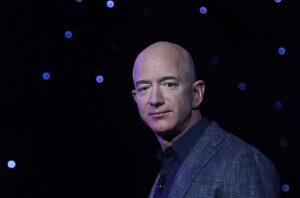The 60th anniversary of the March on Washington, when Martin Luther King Jr. gave his famous “I have a Dream” speech is Monday, Aug, 28.
E. ETHELBERT MILLER, emiller698@aol.com
Miller is a poet based in Washington, D.C. His books include If God Invented Baseball, When Your Wife Has Tommy John Surgery and How I Found Love Behind the Catcher’s Mask. He is quoted in the recent piece “How King’s words brought America closer to its best.”
He said today: “Many have a tendency to overlook King’s prepared remarks, preferring the soaring preaching of the second half of his remarks, when he delivered his eloquent lines — ‘I have a dream’ and ‘free at last’ — which is quoting a spiritual.
“The name of the march was The March on Washington for Jobs and Freedom. King and others were looking at the economic conditions. He himself spoke of how ‘America has given the Negro people a bad check, a check which has come back marked “insufficient funds.”‘
“Many don’t realize that the March was timed to be 100 years after the Emancipation Proclamation. That’s why it was in front of the Lincoln Memorial. The message was that the Negro was not really free.
“The key organizers of the march were A. Philip Randolph and Bayard Rustin, a labor unionist and a socialist.
“Support from celebrities was important, most especially Sidney Poitier and the recently deceased Harry Belafonte.”
Shortly before his death King would tell Belafonte “I’ve come to believe we’re integrating into a burning house.”
Miller noted that Belafonte’s mentor was Paul Robeson, who was relentlessly attacked for his political activism.
In 1967, King said: “When machines and computers, profit motives and property rights are considered more important than people the giant triplets of racism, economic exploitation and militarism are incapable of being conquered.”
In 1968, King would organize the Poor People’s Campaign, which strove to unify poor people of all backgrounds to seek justice. He was assassinated while helping sanitation workers organize in Memphis on April 4, 1968. The Poor People’s Campaign tried to continue his work in June of 1968.
Today, the Poor People’s Campaign: A National Call for Moral Revival has picked up this unfinished work.




 RICARDO VALADEZ, CARTER DOUGHERTY,
RICARDO VALADEZ, CARTER DOUGHERTY, 
